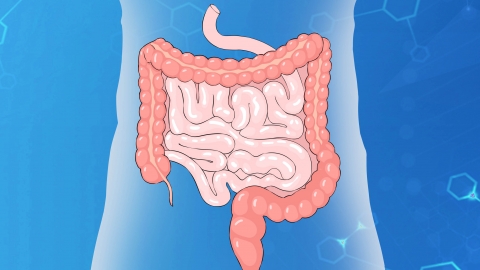What is the most common type of intestinal obstruction?
There is no such thing as the "most common type of intestinal obstruction." Common types include adhesive intestinal obstruction, mechanical intestinal obstruction, paralytic intestinal obstruction, strangulated intestinal obstruction, and fecalith-induced intestinal obstruction. Each type has different causes and risks, requiring specific identification and management. If severe abdominal pain, vomiting, or cessation of flatus and defecation occurs, prompt medical attention is recommended.
1. Adhesive Intestinal Obstruction: Often caused by adhesions following abdominal surgery or inflammation, in which the bowel is pulled or compressed by scar tissue, leading to obstruction. It typically presents with paroxysmal abdominal pain and is commonly seen in individuals with a history of abdominal surgery. Early stages are often incomplete obstructions.
2. Mechanical Intestinal Obstruction: Caused by blockage of the intestinal lumen due to foreign bodies, tumors, intussusception, or external compression from conditions like bowel volvulus or hernias. The intestine above the obstruction becomes distended, and patients experience severe, progressively worsening abdominal pain.

3. Paralytic Intestinal Obstruction: Results from reduced or absent intestinal peristalsis, commonly occurring after abdominal surgery, infections, or electrolyte imbalances. Symptoms include generalized abdominal distension, overflow vomiting, and absence of明显的 paroxysmal colicky pain.
4. Strangulated Intestinal Obstruction: Occurs due to impaired blood supply to the bowel, often developing from conditions such as bowel volvulus or incarcerated hernia. There is a high risk of intestinal ischemia and necrosis, accompanied by severe abdominal pain and signs of shock, requiring emergency surgical intervention.
5. Fecalith-Induced Intestinal Obstruction: Caused by accumulation and hardening of fecal matter into a solid mass (fecalith) that blocks the intestine. It commonly affects elderly individuals, those with chronic constipation, or people consuming low-fiber diets. Obstruction usually occurs in the colon and is associated with abdominal bloating and difficulty passing stool.
To maintain intestinal health, it is important to eat a balanced diet rich in dietary fiber, avoid overeating, establish regular bowel habits to prevent constipation, and undergo routine check-ups—especially for those with a history of abdominal surgery. Any gastrointestinal discomfort should be promptly evaluated.







